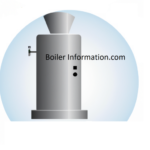Industrial boilers are an integral part of any industrial process. They are used to power plants, provide hot water for heating, and create steam for a variety of uses. There are several types of industrial boilers available depending on the application and type of fuel used.
Fire-Tube Boilers
Fire-tube boilers are the most common type of industrial boiler. They are designed with a cylindrical shell filled with water and a furnace at one end. The hot gases from the furnace pass through the tubes inside the boiler, heating the water and creating steam. These boilers are typically used for low-pressure applications, such as providing hot water for heating.
Water-Tube Boilers
Water-tube boilers are similar to fire-tube boilers, but they use water instead of hot gases to heat the water. This type of boiler is typically used in high-pressure applications, such as power plants, where large amounts of steam are required.
Pulverized Fuel Boilers
Pulverized fuel boilers are designed to burn coal that has been pulverized into a fine powder. The hot gases from combustion of the coal pass through metal tubes inside the boiler, heating the water and creating steam.
Waste Heat Boilers
Waste heat boilers are designed to recover heat from other processes and use it to create steam. They are typically used in processes where a lot of heat is generated, such as in steel mills or power plants, and the heat is not used directly. The waste heat is captured and used to generate steam, which is then used in other processes.
Condensing Boilers
Condensing boilers are designed to recover the latent heat of vaporization from the flue gases. This type of boiler is typically used in high-efficiency applications, such as power plants and industrial processes.
These are the most common types of industrial boilers available, each with its own advantages and disadvantages. Depending on the application, a different type of boiler may be more suitable.
